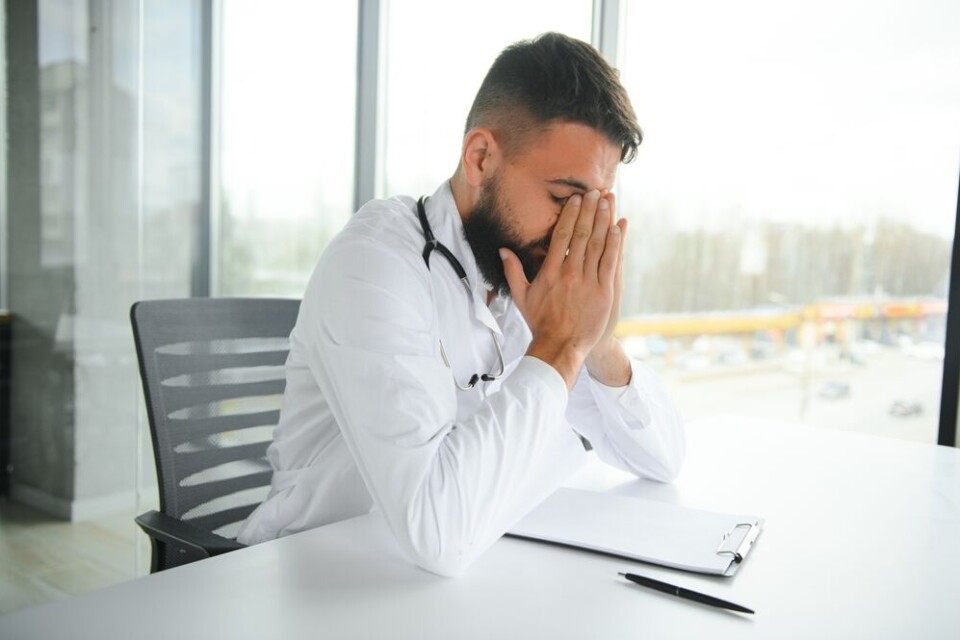-
‘It’s the place we are happiest’: George Clooney and family become French
‘My kids have a much better life [and] speak perfect French’, the Hollywood star says
-
Delays and cancellations for Eurostar and Eurotunnel passengers
A power outage in the Channel Tunnel has caused mass disruption
-
Explained: France's ‘Grand Froid’ plan and what it does
Several departments including Paris have enacted plans for cold temperatures
What to do if you need doctor during strikes starting Friday in France
Many GPs and other self-employed doctors will not be working and options to find assistance elsewhere may be limited

Many healthcare workers, including local GPs and other self-employed doctors, are set to join the nationwide ‘general strike’ on Friday October 13.
Alongside the eight major unions calling on public and private sector workers to strike, an inter-union coalition representing doctors is also calling on members to join the movement.
Unlike other sectors, however, self-employed doctors (médecins libéraux) could extend their strike, with most of their unions backing ‘unlimited’ action with no end date in sight.
“From Friday October 13, private practitioners will stop working to send a strong signal to the public authorities. This is unquestionably a Black Friday, and it will be extended," said Philippe Cuq, spokesman for an inter-union group representing self-employed doctors.
He said that “any consultations… and technical procedures” will not be undertaken by doctors who join the strikes.
Specifically, self-employed doctors are protesting over the cost of medical consultation fees, which they believe need to be raised, as well as improving work conditions.
Self-employed doctors are commonly GPs or specialists with whom patients book appointments directly so the strikes mean it will be much harder to find slots to see a doctor.
More than 50% of all doctors in France are self-employed, according to data from the health ministry dating to 2021.
We cover below what to do if you still need to see a doctor during the strikes.
Still contact your doctor in case they are working
If you have a regular GP (medecin traitant), and have an appointment with them on Friday October 13 or during the following days, you can still contact them to see if they will be working.
“Even if the inter-union group expects that many self-employed doctors will follow this strike, it is advisable to call your doctor to check whether they will be able to honour your appointment,” said Sophie Bauer, president of the Syndicat des médecins libéraux, one of the leading unions representing self-employed doctors.
Some doctors will not be striking and others may only be refusing new appointments and will still see patients who already have a booking.
Read more: France condemned over its lack of masks during Covid pandemic
Call the emergency number or go to a public hospital
“Our aim is precisely to show that it is difficult to do without us,” added Ms Bauer, but they do not want to jeopardise the immediate health needs of someone very sick.
“Call 15 [the number to call the SAMU, Service d'aide médicale urgente, the French emergency health service] if you need help,” she advises.
A doctor will answer the call and give you advice over the phone, and if you need urgent care, they will transfer you to a public hospital, she added.
However, calling 15 is reserved for those in an emergency. For more minor illnesses you should not clog up the lines of a healthcare service already expected to be stretched by the strikes.
Some doctors in public hospitals will also be striking, as well as the SOS Médecins (doctors who answer calls to 15), although their action is limited to October 13. More details of which public healthcare workers will be on strike is expected on Thursday.
Avoid going to a pharmacist if possible
In the absence of a doctor’s appointment, it is better to wait until one is available instead of rushing to see a pharmacist if you are unsure what the problem is, said Soline Guillaumin, a GP and spokesperson for the Médecin pour demain group.
“A doctor makes a diagnosis… examines and questions the patient. Pharmacists don't examine and they haven't been trained to make a diagnosis,” she added.
You should only go to a pharmacist if you know exactly what is wrong (it is a recent illness, or something you have had before, for example) and you know what you need to feel better.
Related articles:
France’s 2024 budget plans for healthcare: What could change for you?
Steep rise in use of medical video-chat booths in French pharmacies
























